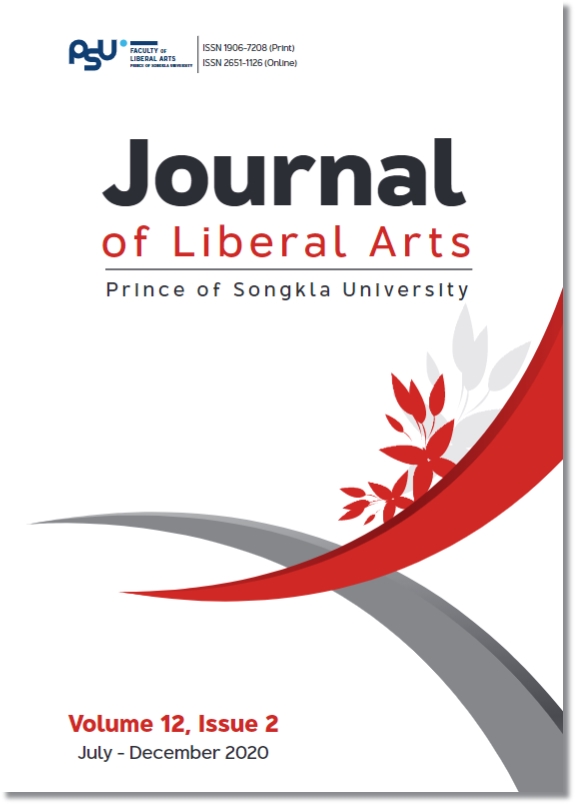Korean Wave 4.0
Keywords:
East Asian culture, Hallyu, Korean culture, Korean wave, soft powerAbstract
This study aims at analyzing the origin and the history of Hallyu or Korean wave, from Hallyu 1.0 to Hallyu 4.0. New trends and perspectives of the current Hallyu are the first case study in which the diffusion of Asian popular culture has been effectively done through information technology, as well as providing a good lesson that shows the success of the East Asian cultural industry in the world cultural order. In this regard, "Hallyu" can be divided into 4 stages, namely Hallyu 1.0 (K-drama), Hallyu 2.0 (K-pop music), Hallyu 3.0 (K-culture) and Hallyu 4.0 (K-style). This study suggests that for long-term success and sustainability Hallyu should focus on creating internally "Attractiveness" and externally "Cultural Network" for sharing knowledge throughout Asia.
References
Ganjanapan, A. (2008). Multicultural in the context of social and culture transaction. Proceedings of the Nationalism and Multicultural Conference. Chiang Mai Universtiy. 217-294. [In Thai]
Han, K. (2010, October 1). The future of Hallyu. Korea Joongang Daily, F6. [In Korean]
Joo et al. (2012). The cultural DNA of Koreans. Amor Mundi Publishers. [In Korean]
Jung, H., & Lee, G. (2010). The influence of Neo-Hallyu on revisit Intention among Japanese and Chinese visitors to Korea. The Tourism Science Society of Korea, 34(6), 249-270. [In Korean]
Kim, B. (2015). Colonial modernity and tourism in East Asia. Humanities & Social Sciences Reviews, 3(1), 37-38. [In Korean]
Kim, B. (2015). Past, present and future of Hallyu (Korean wave). American International Journal of Contemporary Research, 5(5), 154-160. [In Korean]
Kim, S. (2007). The attractiveness of Hallyu and East Asian cultural network. Journal of World Politics, 28(1), 208-212. [In Korean]
Lee, T. (2005). The future of East-Asia: Beyond the historical conflicts. Journal of Korean Culture Research, 35, 322-232. [In Korean]
Petasen, P. (2005). Dae Jang-geum. Siam Inter Books. [In Thai]
Panyapa, R. (2013). The Korean wave and value creation in culture-based entertainment business: The lesson for entertainment business in Thailand. Humanities and Social Sciences Journal, Ubon Ratchatani Rajabhat University, 4(2), 23-38. [In Thai]
Sukchoo, S. (2006). Hallyu: Korean wave for stability. Positioning, 21, 60-61. [In Thai]
Downloads
Published
How to Cite
Issue
Section
License
The authors retain the copyright to their article but the Journal of Liberal Arts, Prince of Songkla University reserves the exclusive rights to first publication.






